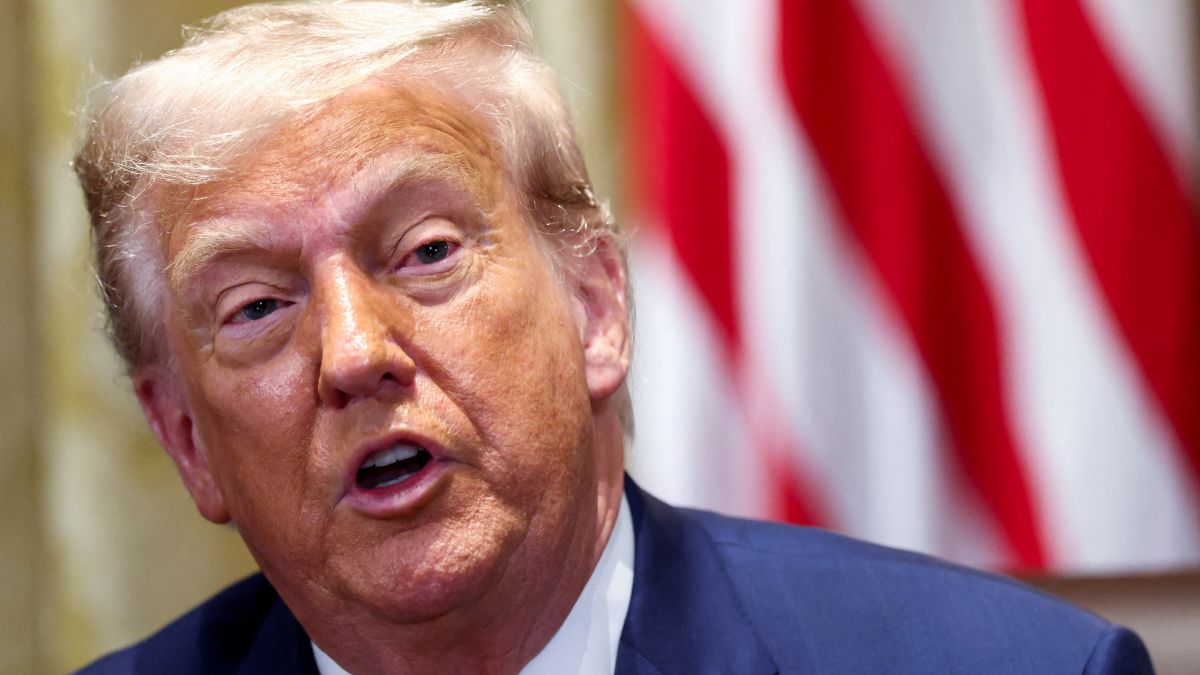US President Donald Trump announced a steep 50 per cent tariff on Brazilian imports Wednesday, linking the move to Brazil’s prosecution of former president Jair Bolsonaro, a sign that personal loyalties, not just economics, are driving US trade policy.
Unlike his usual tariff declarations citing trade imbalances, Trump’s statement specifically tied the tariffs to Bolsonaro’s legal troubles. Bolsonaro, accused of plotting to overturn his 2022 election loss, has been described by Trump as a personal friend.
“This trial should not be taking place. It is a Witch Hunt that should end IMMEDIATELY!” Trump posted on Truth Social, echoing language he’s used to describe his own legal battles over efforts to overturn the 2020 US election. Trump addressed the tariff threat directly to Brazilian President Luiz Inácio Lula da Silva, who defeated Bolsonaro in 2022.
Bolsonaro testified in June before Brazil’s Supreme Court about the alleged coup plot. Judges will hear from 26 other defendants in the coming months, with a ruling expected as early as September. Bolsonaro has already been barred from running for office until 2030.
This is a matter for our judicial system: Brazil’s VP
Brazil’s Vice President Geraldo Alckmin dismissed the tariff threat, saying, “I think he has been misinformed. President Lula was jailed for almost two years. No one questioned the judiciary. This is a matter for our judicial system.”
Trump’s letter also complained about Brazil’s Supreme Court fining social media platforms like X (formerly Twitter) and issuing temporary blocks, calling these actions “SECRET and UNLAWFUL Censorship Orders.” He said he’s launching an investigation under Section 301 of the Trade Act of 1974, which deals with unfair trade practices harming US businesses.
Notably, Trump’s letter omitted the fact that X is owned by Elon Musk—a major Trump supporter in the 2024 election. Trump himself owns Truth Social, a rival platform.
Impact Shorts
More ShortsTrump sends tariff letters
In addition to Brazil, Trump sent tariff letters Wednesday to seven smaller trading partners: the Philippines, Brunei, Moldova, Algeria, Libya, Iraq, and Sri Lanka. None poses a significant economic threat to the US.
This week, he imposed a 35 per cent tariff on Serbia, citing it as an example of how trade policy can influence peace efforts.
While the European Union said it hasn’t received new tariff notices, Trump has already targeted Japan and South Korea with 25 per cent import taxes earlier in the week. Talks are going on with India, for a possible trade deal.
Under Trump’s new plan, imports from Libya, Iraq, Algeria, and Sri Lanka face 30 per cent tariffs, while goods from Moldova and Brunei will be taxed at 25 per cent, and imports from the Philippines at 20 per cent. All new tariffs are set to begin August 1.
Most economists warn Trump’s tariffs could worsen inflation and slow economic growth. Nonetheless, Trump argues tariffs help rebalance trade, fund his tax cuts, and bring manufacturing jobs back to the US. Speaking recently with African leaders, Trump even claimed tariffs can be used to settle global disputes, saying: “You guys are going to fight, we’re not going to trade. And we seem to be quite successful in doing that.”


)

)
)
)
)
)
)
)
)



